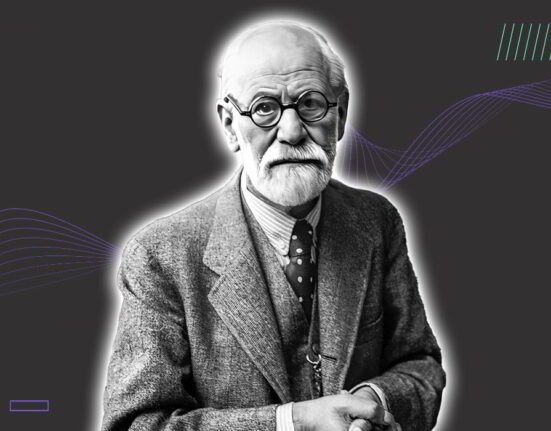Irritable Bowel Syndrome (IBS) is a common condition affecting the digestive system. The symptoms of IBS include stomach cramps, diarrhoea, constipation, and bloating. These symptoms tend to fluctuate over time and can last for days, weeks or even months. This disorder is typically chronic and is caused by a variety of factors, one of which could be explained by the gut-brain interaction.
Read More: The Relation Between Your Stress and Gut
Bidirectional link between IBS symptoms and mental health
The Central Nervous System and the Enteric Nervous System share a bidirectional connection, wherein the brain influences the gut and vice versa, via the vagus nerve and the activity of the sympathetic nervous system. Irritable Bowel Syndrome could be explained by dysregulation of the brain-gut axis, Hypothalamic-Pituitary-Adrenal (HPA) Axis, changes in gastrointestinal motility, infection, immunological reactivity, genetic susceptibility and other psychosocial factors. Particularly, stress is associated with the worsening of IBS symptoms.
This is because stressful experiences trigger the HPA axis which, in turn, regulates mechanisms underlying behavioural, neuroendocrine and autonomic responses to stress. The over-action of the pathway including the HPA axis and the sympathetic nervous system, and the resultant inflammation could explain the IBS symptoms. Gastrointestinal symptoms also occur in association with fear and anxiety. These changes in one’s emotional state tend to affect gut motility.
Studies have also shown bidirectional comorbidities between psychological disorders and IBS. IBS and specific psychological disorders such as mood disorders, somatoform disorders, panic and anxiety disorders share similar genetic risk factors. Both conditions also share the same physiological mechanism – the gut-brain axis. Another way that our mental health, particularly stress, affects IBS symptoms is through its effect on the gut microbiome. Distress signals are carried to the gut by the autonomic nervous system and the circulatory system.
Often immune cells are seen to play the role of messengers in this process, thereby causing inflammation and shifts in the gut microbiome. This also affects serotonin production and imbalance, as the gut microbiome is known for its role in serotonin production. This could, in turn, affect the mental health of the individual.
Treating IBS
There are no standard treatments for IBS, but evidence has shown that medical management, modification in diet and psychotherapy can improve symptoms.
Medical management
The aim of medical management for IBS is to relieve symptoms and lessen their impact on the patient’s quality of life. Medications are prescribed for abdominal pain, diarrhoea, and constipation. To ease the impact on mental health, anti-depressants such as low-dose tricyclic antidepressants, and serotonin reuptake inhibitors are prescribed by psychiatrists.
Dietary modifications
Dietary and lifestyle modifications in the context of individuals suffering from IBS are rather based on trial and error. Some people with IBS benefit from a diet low on or restricting FODMAPS (Fermentable Oligo-, Di-, Monosaccharides, and Polyols). These short-chain carbohydrates, poorly absorbed in the small intestine, are normally fermented near the top of the large intestine, or colon.
People with IBS digest these carbohydrates at segments lower down in the colon than normal. By restricting these carbohydrates, the bacteria and processes needed to break down are not used. Some people benefit from consuming probiotics. Here are some recommendations for symptom-specific dietary modifications:
1. To ease bloating and cramps
- Consume oats regularly
- Avoid products containing sorbitol
- Avoid foods that are hard to digest (such as broccoli, cabbage, cauliflower, beans, onions, etc)
2. To reduce diarrhoea
- Avoid products containing sorbitol
- Reduce the intake of high-fibre foods such as wholegrain foods, seeds and nuts
3. To relieve constipation
- Drink plenty of water
- Increase fibre intake by consuming oats, carrots, potatoes, and linseeds
Psychotherapy
1. Cognitive Behavioural Therapy
Cognitive Behavioural Therapy (CBT) can help manage the psychological and emotional factors that exacerbate IBS symptoms. CBT employs cognitive restructuring to help cope with cognitive distortions and thoughts that provoke stress. It also teaches patients adaptive coping strategies to deal with negative automated thoughts and the emotions associated with them. CBT also helps in treating psychological disorders comorbid with IBS.
2. Gut-directed hypnotherapy
Gut-directed hypnotherapy includes a course of hourly sessions up to 12 weeks. In each session, the hypnotherapist induces a hypnotic state in the client, followed by deepening procedures and ‘ego strengthening’ suggestions. Other suggestions and interventions, such as Reiki and energy healing, complement these methods. Practitioners induce warmth in the abdomen using hands and imagery, harnessing this energy to control and normalize gut function. Gut-directed hypnotherapy has shown promising effects in the treatment of IBS. The majority of the patients who underwent gut-directed hypnotherapy showed improvement in not only their physical symptoms but also their quality of life.
3. Stress management techniques
Since stress is an important factor associated with the onset and worsening of IBS symptoms, de-stressing is a potential strategy to deal with IBS. Some stress management techniques include:
- Improve your sleep hygiene.
- Try to get some physical activity every day.
- Try relaxation techniques, like meditation and breathing exercises.
- Practice regular self-care by maintaining a work-life balance and taking time off for hobbies, and socializing.
Another strategy is to use practices from mindfulness-based stress reduction. This training improves gastrointestinal symptoms related to IBS.
Read More: Mindfulness and humor can facilitate Psychological well-being and reduce stress
In conclusion, Irritable Bowel Syndrome (IBS) is a painful condition, typically chronic. Since the cause of this condition is unclear, treatment approaches often are based on trial and error. Nevertheless, patients with IBS can manage their symptoms and enhance their quality of life by following a holistic treatment approach involving medical management, dietary and lifestyle modifications, and psychotherapy.
References +
- Ehrenfeld, T. (2020, September 10). Is IBS a psychological issue? Psychology Today. https://www.psychologytoday.com/us/blog/open-gently/202009/is-ibs-psychological-issue
- Fadgyas-Stănculete, M., Buga, A., Popa‐Wagner, A., & Dumitraşcu, D. L. (2014). The relationship between irritable bowel syndrome and psychiatric disorders: from molecular changes to clinical manifestations. Journal of Molecular Psychiatry, 2(1). https://doi.org/10.1186/2049-9256-2-4
- Folks, D. G. (2004). The interface of psychiatry and irritable bowel syndrome. Current Psychiatry Reports, 6(3), 210–215. https://doi.org/10.1007/s11920-004-0066-0
- Gillette, H. (2023, October 3). Can CBT help treat IBS? Healthline. https://www.healthline.com/health/ibs/cbt-for-ibs
- Gonsalkorale, W. M. (2003). Long term benefits of hypnotherapy for irritable bowel syndrome. Gut, 52(11), 1623–1629. https://doi.org/10.1136/gut.52.11.1623
- Mayer, E. A., Ryu, H. J., & Bhatt, R. (2023). The neurobiology of irritable bowel syndrome. Molecular Psychiatry, 28(4),1451–1465.https://doi.org/10.1038/s41380-023-01972-w
- Naliboff, B. D., Smith, S. R., Serpa, J. G., Laird, K. T., Stains, J., Connolly, L., Labus, J. S., & Tillisch, K. (2020). Mindfulness‐based stress reduction improves irritable bowel syndrome (IBS) symptoms via specific aspects of mindfulness. Neurogastroenterology and Motility, 32(9). https://doi.org/10.1111/nmo.13828
- NHS. (n.d.). Diet, lifestyle and medicines. https://www.nhs.uk/conditions/irritable-bowel-syndrome-ibs/diet-lifestyle-and-medicines/
- NHS. (n.d.). What is IBS? https://www.nhs.uk/conditions/irritable-bowel-syndrome-ibs/
- Staudacher, H. M., Black, C. J., Teasdale, S., Mikocka‐Walus, A., & Keefer, L. (2023). Irritable bowel syndrome and mental health comorbidity — approach to multidisciplinary management. Nature Reviews Gastroenterology & Hepatology, 20(9), 582–596. https://doi.org/10.1038/s41575-023-00794-z
- The Healthline Editorial Team. (2023, April 12). How stress and anxiety can aggravate IBS symptoms. Healthline. https://www.healthline.com/health/irritable-bowel-syndrome/stress-and-anxiety













Leave feedback about this